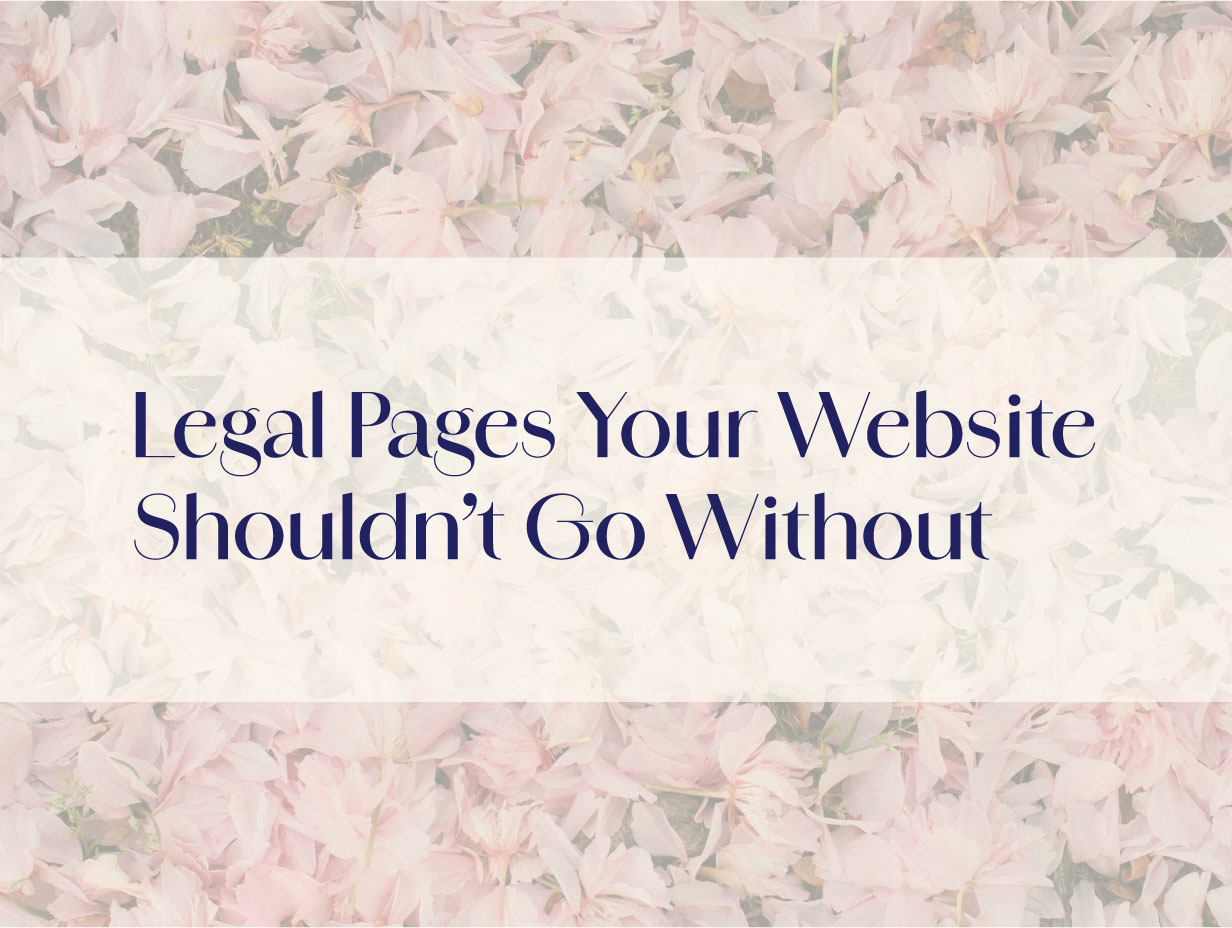Collecting Emails? Then You Probably Need These Pages on Your Website
written by @patty
If you have something as simple as a contact form asking for a name and email… And you don’t have a Privacy Policy or even a basic Terms page? You need one. Now.
Depending on where you live, having a privacy policy isn’t just a suggestion—it’s the law. Even in the U.S., where regulations vary by state, it’s considered best practice and a sign of professionalism. It tells your visitors:
"I promise to use your information respectfully and only for the purpose I say I will."
If you're in a field that requires trust—like functional medicine, therapy, fitness coaching, holistic care, or life coaching—this kind of transparency is essential. But really, any service-based business collecting information from users should have these pages in place.
1. Privacy Policy
What it does:
Outlines what data you collect (name, email, cookies, location), how you use it, and how users can request changes or opt out.
You need it if you...
- Collect any personal info through forms or sign-ups.
- Use tools like Google Analytics or Facebook Pixel.
- Schedule consults, sell products, or run memberships.
Even if you're not “selling,” data collection still counts. If your site says “enter your email for a free resource,” you’re collecting personal data and need to be clear about how it’s used.
2. Terms and Conditions
What it does:
Sets the rules for using your website. Covers things like acceptable use, content ownership, payment policies, and what happens if something goes wrong.
When it matters:
- If you offer services or digital products.
- If you have a program or group coaching offer.
- If your site includes a blog, downloads, or interactive tools.
Terms and Conditions protect both you and the visitor. They let users know what’s expected and give you a written reference point if someone misuses your content or platform.
3. Disclaimers
What it does:
Limits your liability and clarifies that your content isn’t a substitute for professional advice.
You definitely need one if you...
- Talk about health, mental wellness, fitness, or nutrition.
- Recommend tools, supplements, or exercises.
- Share personal experiences that others may try to replicate.
Common language might include:
- "This content is for educational purposes only."
- "Always consult your physician before starting a new fitness or wellness plan."
- "This is not medical advice."
If you’re an affiliate for products or services, you’ll also need an affiliate disclaimer.
Real-World Scenarios
| Role | What You Need |
|---|---|
| Life Coach with a course sign-up | Privacy Policy + Terms |
| Therapist sharing blog content | Privacy Policy + Disclaimer |
| Nutritionist linking to supplements | All three |
| Fitness Coach offering downloads | Terms + Disclaimer |
| Clinic or studio with intake forms | Privacy Policy + Disclaimer |
How to Create These Pages
There are trusted tools that can generate policies and disclaimers quickly — you don’t need to start from scratch.
Here are a few to explore:
However, if your business involves any kind of liability—particularly in fields like mental health, physical wellness, or nutrition—it's not enough to rely on generic templates. In these cases, it's strongly recommended to work with a business lawyer who understands the unique risks and regulations of your industry.
One excellent resource is Berkeley Sweetapple of The Business Studio. She specializes in legally sound policies for service-based businesses and online practitioners. Her legal templates are clear, comprehensive, and designed specifically for coaches, consultants, creatives, and health professionals who need airtight protection without the overwhelm.
If you decide her templates are a good fit, you can use my referral link—it supports my work at no extra cost to you. :)
If legal counsel isn’t feasible right now, platforms like the ones listed above can help you get started—just make sure the templates you choose actually match your business model and risk level.
What We Offer at Creative Pea
At Creative Pea, we support service-based businesses with more than branding and web design. We provide creative and development solutions—including help with implementing the policies your site needs to operate responsibly and professionally.
Whether you're just getting started or revamping your site, we're here to make sure your digital presence reflects the same care you bring to your work.
Final Thoughts
Your website doesn’t need to feel heavy or intimidating, but it does need to be clear. Whether you're collecting emails, sharing advice, or offering a service, the content you publish carries weight.
These pages—Privacy Policy, Terms and Conditions, and Disclaimers—don’t just protect you. They create clarity and trust for the people you’re trying to reach.
And that’s what a good website should do.

